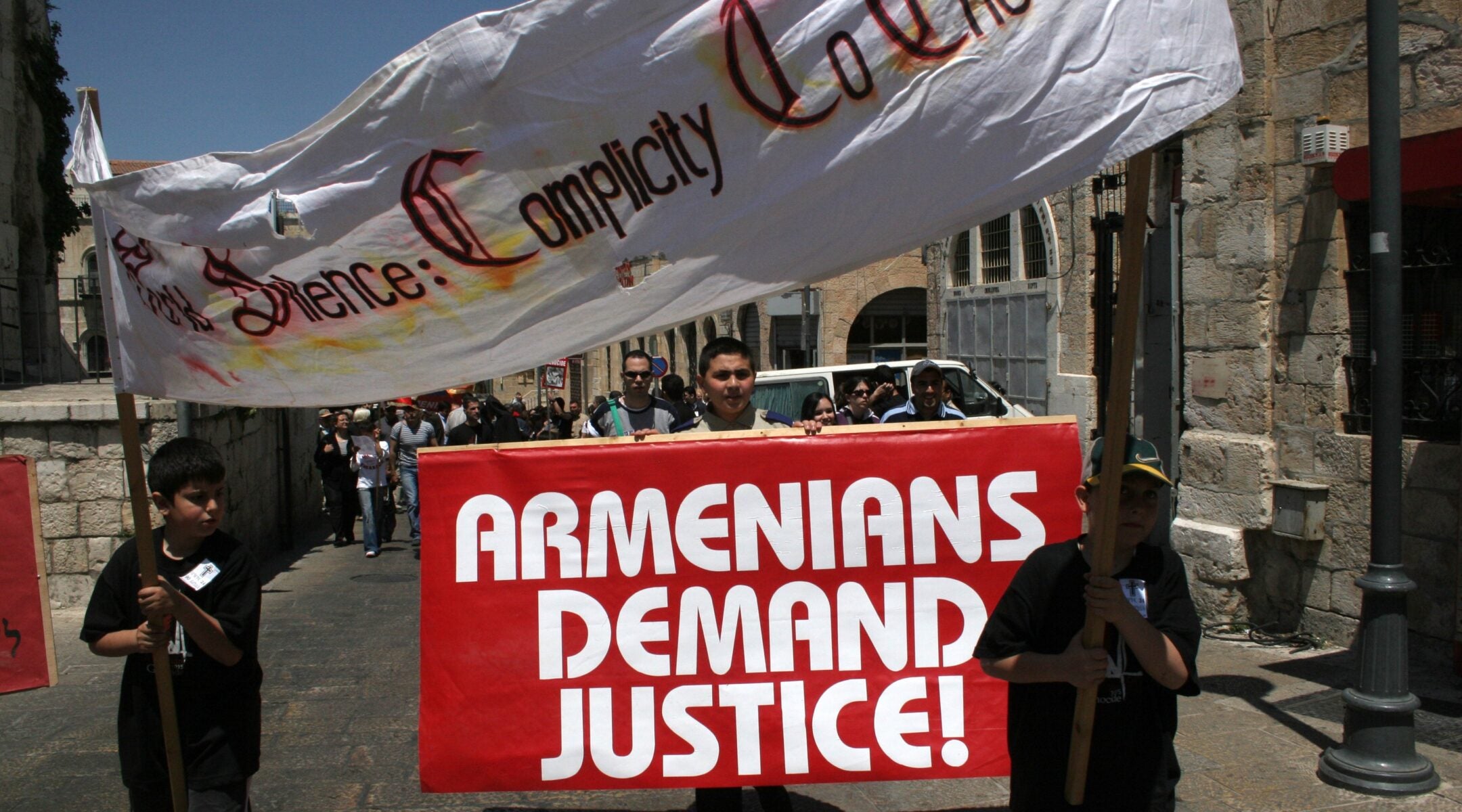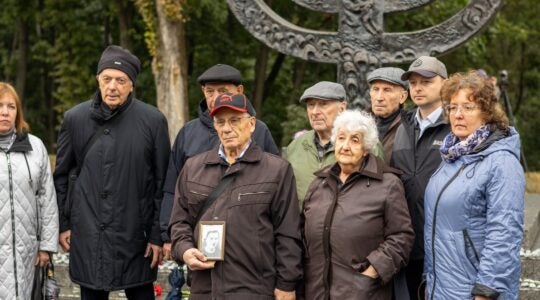Israeli Prime Minister Benjamin Netanyahu said he recognizes the Armenian genocide, in a declaration that marks a stark departure for an Israeli leader.
Speaking on a podcast on Tuesday, Netanyahu also suggested, inaccurately, that the Israeli government had officially recognized the early 20th-century genocide.
Netanyahu was questioned about the killing of between 600,000 and 1.2 million Armenians in the Ottoman Empire during an interview with Patrick Bet-David, a conservative businessman and podcaster of Assyrian and Armenian descent, on Tuesday. Bet-David asked on his “PBD Podcast” why Israel, given its own roots in the Holocaust, has not recognized what many historians consider the first genocide of the 20th century.
“In fact, I think we have,” said Netanyahu. “I think the Knesset passed a resolution to that effect.” When Bet-David pressed whether such recognition came from Netanyahu directly, he responded, “I just did. Here you go.”
The Knesset, Israel’s legislature, has not officially recognized the Armenian genocide — despite appeals from the community of 5,000 to 6,000 Armenians living in Israel and the Palestinian territories, including some who descend from survivors of the 1915-16 killings.
In 2016, the Knesset Education Committee called on the government to implement a formal acknowledgment of genocide, but none followed. Politician Tamar Zandberg proposed a discussion and vote on the issue in 2018, but the governing coalition proposed changing her language from “genocide” to “tragedy” or “atrocities of the Armenian people,” and Zandberg withdrew the proposal.
While more than 30 governments recognize the events as a genocide, Turkey’s government has resisted the charge, interpreting it as an attack on the modern state and contending there was no official policy of extermination against Armenians. Many other countries have avoided the designation to preserve their strategic ties with Turkey, the second-largest standing military in NATO after the United States.
Israel was firmly in that camp for decades, while also having an additional stake in reserving the term “genocide” to describe the Holocaust perpetrated by the Nazis against the Jews of Europe — the catastrophe that birthed the term.
Before Turkish President Recep Tayyip Erdogan came to power in 2003, Turkey and Israel had close diplomatic ties, sharing counterterrorism and intelligence efforts along with trade and tourism. Their relationship deteriorated amid the collapse of the Israeli-Palestinian peace process, the 2008-2009 Israel-Gaza War and Erdogan’s professed support for Hamas — finally imploding in 2010, when Israeli troops raided a Turkish ship leading a flotilla of volunteers and aid to Gaza, killing nine Turks on board.
Relations between Netanyahu and Erdogan were warming again before Oct. 7, 2023. But they tanked after the Hamas attacks and Israel’s ensuing war in Gaza: Turkey severed trade with Israel, worth $7 billion a year, on the condition of a permanent ceasefire last year.
In the United States, former President Joe Biden became the first leader to recognize the Armenian genocide in 2021. The move was lauded by two major Jewish organizations, the American Jewish Committee and the Anti-Defamation League, that had lobbied against the same recognition in 2007. The groups changed their position after the Turkey-Israel alliance fell apart.
Aram Suren Hamparian, executive director of the Armenian National Committee of America, responded with skepticism to Netanyahu’s recognition of the genocide. He pointed to Israel’s supply of arms to Azerbaijan in the country’s 2023 campaign to capture the ethnic Armenian enclave of Nagorno-Karabakh, forcing more than 100,000 Armenians to flee.
Hamparian said Netanyahu’s statement must “be followed by a sharp break with Israel’s military alliance with Azerbaijan and public pressure on Turkey to abandon its denial and obstruction of justice for the Armenian Genocide.”
U.S. President Donald Trump announced earlier this month that he had brokered a peace agreement between Azerbaijan and Armenia, setting the stage for Azerbaijan to reduce its demand for imported weapons.
Hamparian also referenced threats against Armenian Christians who live in Jerusalem, such as attacks from Jewish fundamentalists, along with “serious and sustained violations of international law in Gaza, akin to Azerbaijan’s ethnic cleansing of Artsakh.” Netanyahu’s comment on the Armenian genocide comes as his own country is accused by rights groups and scholars, both internationally and in Israel, of committing genocide against Palestinians. Israel rejects the charge.
JTA has documented Jewish history in real-time for over a century. Keep our journalism strong by joining us in supporting independent, award-winning reporting.






